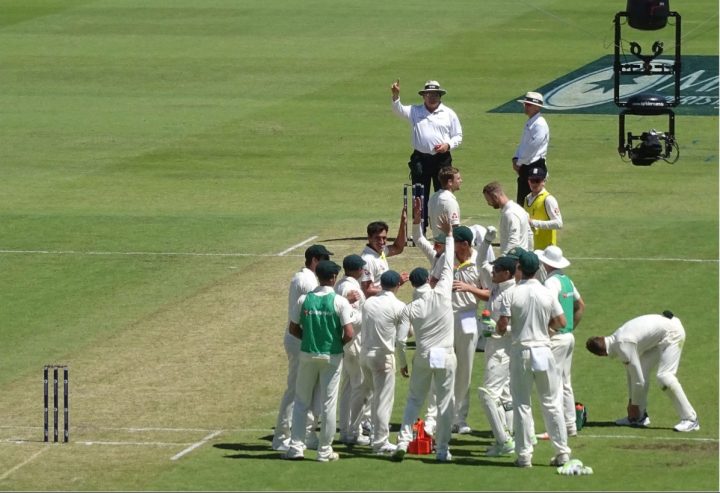Stumps: Pakistan (99 and 222-2) lead England (141) by 180 runs
Thanks for your tremendous response to yesterday’s post about the crazy world of the Decision Review System. It’s still the biggest talking point in town, so we’re going to stay with it today – if nothing else, it’s an excuse not to dwell on the horrors unfolding in the actual match.
My view’s no more valid than any other cricket follower’s, but as we’re on the subject, here’s why I still believe the DRS is officially A Bad Thing.
1. The human factor Cricket is a game, played by people for other people to watch. Its emotional and psychological dimensions are an essential part of the sport’s appeal. So why have we now outsourced such an critical aspect – the umpiring – to a soulless, faceless, uncaring computer?
2. This is not what it was meant to do The original idea was to eradicate the real howlers – edges which weren’t, bat pads, LBWs which were bat first. But those kinds of dismissals are pretty marginal now in DRS terms – it’s all about LBW. Essentially, any vaguely marginal LBW is removed from the umpires’ juridiction and ajudged by a tracking system. That is not what we signed up for.
3. Kills the drama There were eight reviews on Friday – each one causing delays and inertia. Not only does DRS slow down play, it also heavily dilutes cricket’s chief source of drama – the fall of a wicket. Why is it so important to get decisions right as long as the umpires are neutral and try their best? A cricket match is not a medical procedure, military operation or legal proceeding. Entertainment is more important than justice.
4. Accountability There are numerous test umpires, and if any of them continually gets things wrong, he will be removed from duty. The human officials are heavily scrutinised. But who keeps Hawkeye and Virtual Eye on the money? Those two companies now wield enormous influence in international cricket. Who are they, and how did they decide the criteria by which their systems work? We’ve put huge and rather blind faith into their expertise, but are essentially just taking their word for it. How do we know the tracking and predictions are accurate? At least if an umpire gets it wrong, we can tell for ourselves.
5. Negatives outweigh positives For any cricketing innovation, all that matters is this: does it make the game better? For me, better means more interesting, exciting or competitive. And has DRS achieved any of the three? No.
As ever, we’d love to hear your thoughts on all the above.
Turning to the match itself – well, I can hardly bear to. Three-nil beckons. In time, we’ll look back at this series as one of those in which nothing was ever going to go right for us. Yes, our batsmen have been awful, but also a little unlucky – especially Trott, KP and Bell on Friday.
The impending whitewash is all very unfair on our bowlers who have been almost flawless throughout, save for a dodgy patch towards the end today. Stuart Broad is probably in the form of his life – and what’s he got to show for it? Graeme Swann’s not been quite so sharp, though. Are you getting the feeling his best days are now behind him? 222-2 is not a dreadful score, really, to concede in the circumstances. If we’d batted properly the scoreboard would look fine.
Speaking of bowlers, Jimmy Anderson is now the most successful English one of the modern era, or at least since “Sir” Ian Botham. His dismissal of Umar this morning took him to 249 test wickets and sixth place in the all-time England list. He’s still only twenty nine, and barring injury will surely eventually overhaul Bob Willis’s 325 to take second place. Anderson has already surpassed all the other leading England bowlers of recent years – Flintoff, Hoggard, Harmison, Gough and Caddick. Is he a better bowler than any of those? Or played in a more conducive period for the England team?
Reading the paeans to Pakistan’s batsmen today, it struck me that whenever they play slowly they’re praised for being sensible and circumspect, and when they go for a tonk they’re described as assertive and proactive. When English batsmen do the same, it’s called either ‘meek’ or ‘reckless’. That’s the problem with trying to appraise batting – it’s easy to read far too much into it. You either manage to hit the ball, or you don’t.
Maxie Allen









